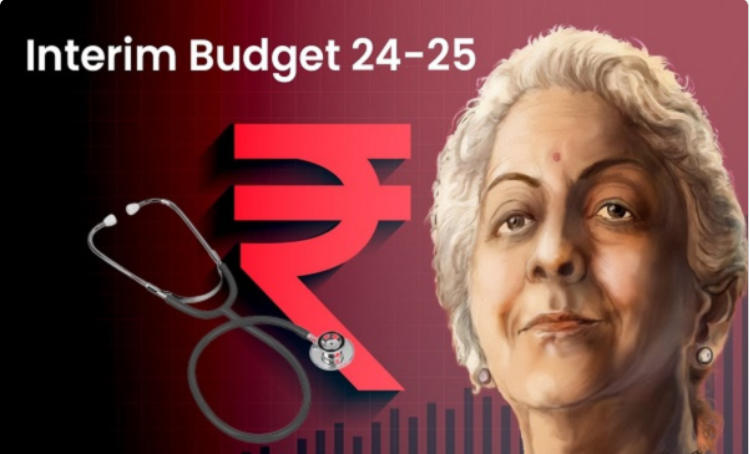New Delhi, February 01, 2024 — The Indian healthcare sector is buzzing with optimism following the comprehensive reforms announced in the Interim Union Budget 2024-25. Despite being an Interim Budget, Finance Minister Nirmala Sitharaman demonstrated a commitment to healthcare by announcing substantial measures to fortify the sector.
Despite being an Interim Budget, Healthcare leaders exhibit positive reactions to the government's multifaceted approach outlined for economic growth and development, particularly in the healthcare sector. The commitment to establishing additional medical colleges, preventive measures like cervical cancer vaccination, and the integration of maternal and child healthcare schemes into a comprehensive program have garnered varied responses. Each leader, driven by their specific expertise and priorities, provides a unique perspective on the government's initiatives.
"Recognizing the need for providing Universal Health Care, the interim Union Budget 2024-25 extended the Ayushman Bharat scheme to cover nearly over three million ASHAs and Anganwadi workers. In a noteworthy move, the budget also unveiled a roadmap for addressing long-term capacity building by investing in healthcare infrastructure, and converting existing hospitals into medical and nursing colleges. This will go a long way towards addressing the skill shortage in the healthcare industry and create millions of jobs. These initiatives align with our commitment to provide comprehensive health coverage across all our hospitals.” said Mr. Viren Shetty, Executive Vice Chairman of Narayana Health.
According to industry experts, the healthcare sector provides direct employment to 4.7 million people and has emerged as one of the fastest-growing segments, with the provider segment now crossing the $132 billion mark, growing at a CAGR of 16%-17%.
Ms. Sugandh Ahluwalia, Chief Strategy Officer, Indian Spinal Injuries Centre, New Delhi, said, "The paramount importance lies in capacity building within the realm of public health. A robust focus, particularly through the creation of more medical colleges in the country, is crucial. Assessing the practicality of integrating various healthcare programs and ensuring seamless implementation underscores the critical need for adequate resources. While acknowledging the positive aspects of the government's initiatives, a cautious approach is urged to avoid disruptions in ongoing healthcare efforts. Integrating several schemes into one flagship program may create a gap in delivery systems. From a strategic perspective, the creation of additional medical colleges emerges as a key component in enhancing the overall capacity of the healthcare system, aligning with a future-oriented vision for a strengthened and resilient health infrastructure.”
Import duties on medical equipment have become a significant pain point for hospitals seeking state-of-the-art technology. With a substantial increase in import duties in the last three years, the sector has witnessed a substantial rise in the cost of medical equipment imports. The government's 'Make in India' initiative is commendable, but big hospitals must maintain global competitiveness.
“Union Budget has given a boost to research and innovations with a corpus of Rs 1 lakh crore for long-term financing and refinancing. This is a welcome step. However, the government has not touched import duties in the interim provisions, we can expect this in the full budget by the next government. The tax rationalization would be necessary to gear up for an aspirational $50 billion MedTech economy. The heavy import duties on medical equipment affect operational costs. The Med Tech industry was expecting a reduction of import duties, creating a win-win situation for both manufacturers and large hospitals,” said Mr. Prashant Arer, India Head, Enbio Group AG.
The government's commitment to enhancing the financial sector's capacity is promising for healthcare. Healthcare leaders see potential in improved financial systems supporting healthcare investments. However, close monitoring and periodic assessments will be essential to ensure the financial sector's readiness aligns with the pace of healthcare developments.
Dr Anand Bansal, Medical Director, of Sri Balaji Action Medical Institute, said, " The integration of nutrition delivery, early childhood care schemes, and other health programs into a comprehensive program is a holistic approach. We welcome such a move but stress the need for effective coordination among different departments to ensure seamless service delivery. Interdepartmental collaboration will be key to success. The government's proactive approach to addressing the healthcare sector's needs is commendable. Going forward, we need to have such innovative policies that not only strengthen the sector but also ensure affordable and quality healthcare for the 1.4 billion citizens”
Overall, experts believe that the government has taken some positive measures to create a new healthcare economy in the country.

 The healthcare sector has emerged as one of the fastest-growing segments, with the provider segment crossing the $132 billion mark, growing at a CAGR of 16%-17% .
The healthcare sector has emerged as one of the fastest-growing segments, with the provider segment crossing the $132 billion mark, growing at a CAGR of 16%-17% .










.jpeg)



.jpg)





.jpeg)

.jpg)





.png)

